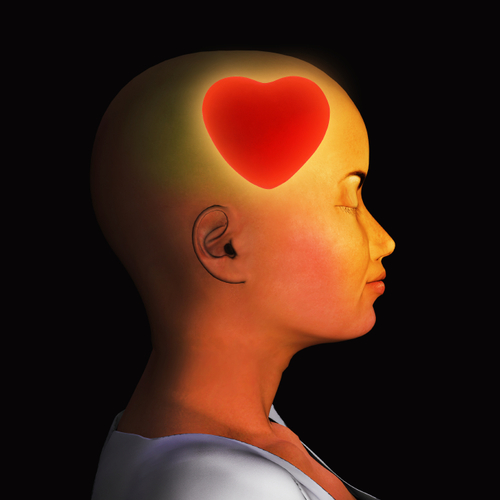 The key to a healthy brain starts with the heart, according to new research.
The key to a healthy brain starts with the heart, according to new research.
I’ve always been a pretty big believer that your body works as a whole. Sure, it’s divided up into a number of different areas that serve different functions, but at the end of the day it’s one big system requiring optimal contributions all around. Your heart works with your liver, lungs and brain, and if one of those cogs has trouble, it’s going to affect the entire system.
Your ability to learn and remember can take a bit of a dip as you get older—that’s no surprise. But it turns out that the key to a healthy brain might very well be a healthy heart.
Healthy Brain and Heart Health Connection: Study
The other day I read a study from the University of Miami and I tell you, it put a smile on my face. It showed that people who take better care of their hearts display less cognitive decline as they age. That means that a healthy heart can lead to a healthy brain by helping to defend against problems such as memory loss, trouble learning, and difficulty planning, as well as other tasks requiring a sharp mind.
Now, of course aging is a reality and there are certain inevitable changes that come along with it, but these changes—including those in brain health—can be delayed by the decisions you make every day.
3 Ways to Build a Healthy Heart
If you want to improve your brain health, start by making decisions that affect your heart—your ability to carry out daily tasks independently may depend on it! Here are some of the top ways to build a strong, healthy heart that can benefit your brain:
1. Get active: If you want to make your heart better, you’ve got to use it. As little as 30 minutes of activity every day can lower blood pressure and improve circulation. Physical activity is also directly related to improved executive processes, such as planning, scheduling, memory, and inhibition.
2. Eat healthy: Your body will function optimally, if it has the right fuel. Eating a lot of processed foods can increase the likelihood of depression, raise blood pressure, and make you a prime candidate for heart disease. Fruits, vegetables, legumes, fish, and healthy fats can improve heart health and brain function. A Mediterranean or Okinawan diet can help battle cognitive decline.
3. Get sunlight: Vitamin D is associated with a healthy heart and improved cognitive function. A deficiency in this valuable nutrient can add to an increased risk for heart disease and faster rates of cognitive decline in aging populations. Spend 20 to 60 minutes in the sun per day, and take a supplement if needed.
Now that you know that a healthy brain needs a healthy heart—it’s time to get up, get moving and improve your heart health!
Sources for Today’s Article:
“Healthy heart equals healthy brain,” Science Daily web site, March 16, 2016; https://www.sciencedaily.com/releases/2016/03/160316194211.htm, last accessed March 21, 2016.
Ratey, J.J., et al., “The positive impact of physical activity on cognition during adulthood: a review of underlying mechanisms, evidence and recommendations,” Nature Reviews Neuroscience, 2011; 22(2):171-85, doi: 10.1515/RNS.2011.017.
Valls-Pedret, C., et al., “Mediterranean Diet and Age-Related Cognitive Decline: A Randomized Clinical Trial,” JAMA Internal Medicine, 2015; 175(7):1094-103, doi: 10.1001/jamainternmed.2015.1668.
Miller, J. W., et al., “Vitamin D Status and Rates of Cognitive Decline in a Multiethnic Cohort of Older Adults,” JAMA Neurology, 2015; 72(11):1295-1303, doi:10.1001/jamaneurol.2015.2115.
